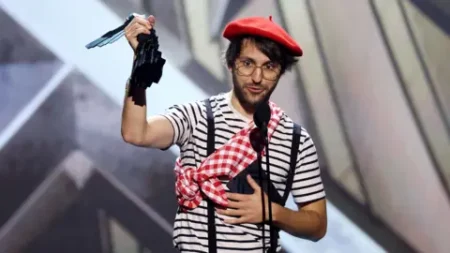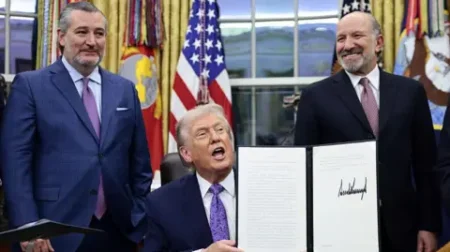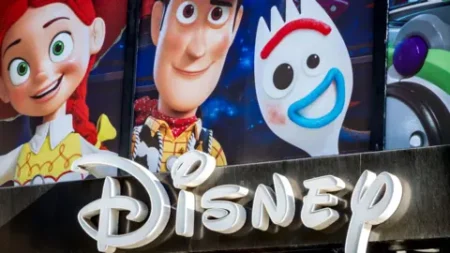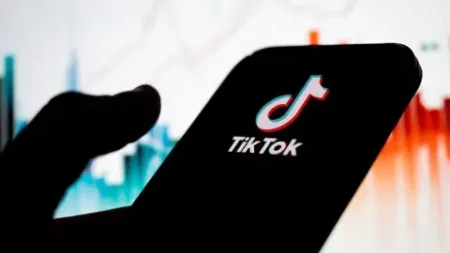In recent times, the landscape of celebrity ventures has shifted, leaving behind trends such as tequila in favor of a new player: telecommunications. Not far behind this growing trend are a trio of well-known actors — Sean Hayes, Will Arnett, and Jason Bateman — who are making headlines with the launch of their new wireless service named SmartLess Mobile. This endeavor aims to provide an affordable alternative to the often exorbitant unlimited data plans offered by major telecom carriers such as Verizon, T-Mobile, and AT&T.
The inception of SmartLess Mobile stemmed from a straightforward observation: despite the industry’s emphasis on unlimited data plans, the majority of consumers do not utilize that much data in their daily usage. The co-founders realized that even those who seem glued to their smartphones are largely operating under Wi-Fi. Paul McAleese, the CEO of SmartLess, emphasized this point when he said, “Most Americans spend almost 90% of their time under Wi-Fi. Their mobile device very seldom actually uses the actual wireless network.” This insight provides a compelling rationale for the launch of their service, which aims to cater to the reality of contemporary digital habits.
Research supports this perspective, revealing that mobile customers typically spend between 77% to 88% of their time connected to Wi-Fi networks, according to a study by consultancy firm OpenSignal. With SmartLess Mobile, users can acquire wireless plans beginning at a modest $15 per month for 5 gigabytes of high-speed data. This affordability stands in stark contrast to starter unlimited plans from larger carriers, which can range from $35 to as much as $65 monthly. The value proposition is clear; SmartLess is positioning itself as a sensible choice for consumers who primarily use their phones in Wi-Fi environments.
The inception of the company was partly inspired by a conversation between McAleese and Arnett about the high costs of mobile plans. Arnett recalled purchasing an unlimited plan for around $70 a month for his teenage son, only to later question the necessity of such a plan when his son spent most of his time connected to Wi-Fi at home and school. This dialogue sparked the idea for SmartLess Mobile, highlighting the disconnect between consumer needs and what traditional telecom companies offer.
SmartLess Mobile is entering a competitive market, which has seen a surge of celebrity-backed wireless carriers, including Ted Danson’s association with Consumer Cellular and Ryan Reynolds’ Mint Mobile, recently acquired by T-Mobile. These mobile virtual network operators (MVNOs) typically lease access to a major telecom provider’s spectrum, thus allowing them to sell wireless services at lower prices without the burden of managing the physical infrastructure. For SmartLess Mobile, this means utilizing T-Mobile’s robust 5G network while keeping costs down for consumers.
However, MVNOs face unique challenges; they risk being blamed for service disruptions tied to their partner networks and may not be suitable for every customer, particularly those such as ride-share drivers who have higher data needs. The primary hurdle for any MVNO, according to Jeffrey Moore, a principal at Wave7 research, is distinguishing themselves in a saturated market dominated by well-established carriers. The truth is that larger companies often overshadow smaller ones through attractive deals on new phones, further complicating the competitive landscape.
To counterbalance these challenges, smaller carriers must either offer distinctive services or leverage innovative marketing strategies. The involvement of celebrities is a significant asset in this arena, and the trio of Hayes, Arnett, and Bateman already possesses a built-in audience due to their popular podcast, “SmartLess,” ranked among the top 20 on Apple Podcasts. With a combined social media following that exceeds two million on Instagram, the trio’s star power could translate into substantial customer interest.
The branding choice for SmartLess is also notable. McAleese pointed out that having “smart” and “less” in the name gives the brand a conceptual advantage in standing out as a challenger brand. The team plans to engage their audience by discussing SmartLess Mobile directly on their podcast in the weeks to come.
Crucially, the involvement of Hayes, Arnett, and Bateman goes beyond that of a typical endorsement; they are deeply integrated into the operations of the company. This hands-on approach involves everything from financing to marketing, positioning the trio as authentic representatives of the brand. McAleese reflects on their storytelling capabilities and credibility, stating, “They have the brand ethos of sort of an honest broker.” The collaborative spirit between the actors and the telecom initiative presents an exciting venture at the intersection of entertainment and technology.
In summary, SmartLess Mobile signifies a potential shift in how wireless services can be marketed and consumed, embodying a combination of celebrity capital, technological evolution, and an acute understanding of consumer behavior.











